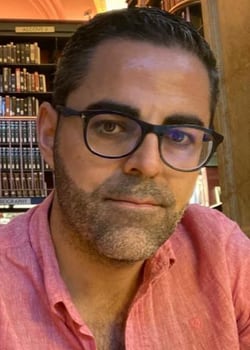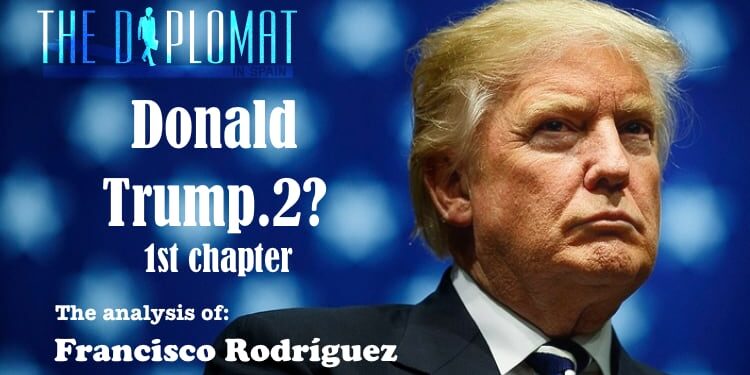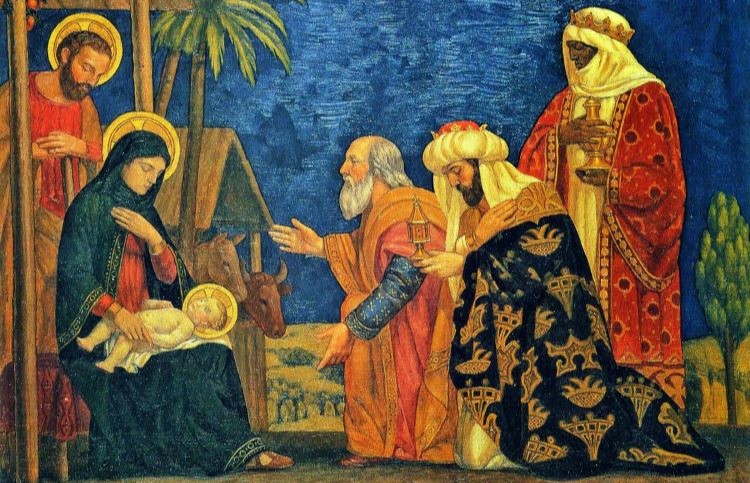SUMMARY
Comparisons are odious, sometimes impossible. President Lincoln acknowledged on several occasions his frustration at the impossibility of changing some aspects of the surrounding reality. Unable to navigate in the desired direction, he admitted that he had been dragged down by previous historical dynamics. Can you imagine former President Donald Trump in a similar act of constriction? What will happen if in three weeks he is defeated by Kamala Harris, as in the 2020 elections he was defeated by Biden?
Francisco Rodríguez Jiménez / Instituto Franklin
Trump is not today the political outsider who surprised all and sundry in June 2015 when he announced he would compete in the presidential race for the White House. He was then 69 years old, had an aura of a successful businessman (largely self-made), great media popularity and the freshness of not belonging to the establishment of either of the two major parties. In fact, he had previously threatened to run as a Democratic candidate.
Nine years later, what became of the hyperactive Trump, is he still the charismatic leader who mobilized the “impoverished middle class white America”? The spatial limitation of this column prevents a detailed analysis of the character and his historical time. Let us look at some of his most notable characteristics, his continuities and possible changes in the script.
1. Family imprint
Donald Trump is the fourth child of the marriage between Fred Trump -of German origin- and the Scottish Mary Anne MacLeod. Fred was reserved, stern, and a workaholic. She was a laugher, outgoing. She had an active social life, and led philanthropic campaigns. The family grew up in an opulent environment, in a huge house, with cooks, chauffeur, luxury cars and a yacht that they painted with the clan name in big letters and bright colors. The elder Trump wanted his eldest son, Frederick, to take the reins of the family business. Fred Junior accepted the challenge. But there were constant disagreements between the two. They had very different personalities. That was the beginning of Donald Trump’s career. Extremely competitive, he craved the position initially designated for his older brother, and he got it. Feeling left out, Fred Junior went into a spiral of isolation. He turned to drink. He died in 1981, aged just 43. Donald Trump is said to be a total teetotaler for this reason, to show his determination…
2. Trump believes he has a mission to fulfill
On Sundays the family traveled dozens of miles from their humble home neighborhood to the heart of the “Big Apple” to attend Mass. They did not go to just any church. The Marble Collegiate Church brought together part of New York’s business elite, as well as renowned politicians, including, for example, future President Richard Nixon. Norman Peale, a pastor who became a media star after the publication of a motivational book -a self-help book, we would say nowadays- officiated there. In the pages of The Power of Positive Thinking, Peale glossed the Bible to excerpt messages of encouragement and positivity. Donald Trump was ten years old. Between psalms and candles, Trump promised himself that he would come back to conquer the “Big Apple”…
3. Trump never gives up
At the time Fred Trump faced several lawsuits. He was investigated for obtaining tax benefits for his real estate investments under conditions of dubious legality. To defend himself, Fred hired the services of attorney Roy Cohn, who was already popular for having been an aide to Senator Joseph McCarthy during the “Witch Hunt”. McCarthy’s reputation faded over the years, but Cohn was able to reinvent himself. He became one of the most famous lawyers in New York because of his good political connections and some business dealings with the Mafia. In Donald Trump’s already long experience before the courts, a maxim he learned from Cohn is repeated: counterattack, stretch legal deadlines, never apologize…
4. Trump, me, me, me, me
With generous doses of narcissism, Trump was forging a cinematic image of himself. For a while he flirted with the possibility of becoming an actor. He felt admiration for Clint Eastwood. Dry, tough, pure nerve. But above all, he was ambitious for his fame. Before leading the family business, Trump even dabbled as a Broadway promoter. The amount paid out hardly had any return, nor did it bring him the fame he was looking for. He then started a marketing strategy made in Trump: christening his possessions with his own name: Trump Tower, the Trump parking lot, the Trump cafeteria, etc. In the 1970s he began to frequent nightclubs. In the pop nights of the mythical discotheque Studio 54 he expanded his network of contacts and cultivated his fame as a casanova. Such exhibitionism would bear the desired fruits. Vanity Fair magazine , the epitome of “celebrity”, described him as a millionaire promoter, energetic, carefree. Since the mid-eighties he faced serious financial turbulence, including bankruptcies. He reemerged a decade later. His popularity skyrocketed in 2004, as host of a reality TV show, The Apprentice. Beyond this brief x-ray of his personality, it is important not to lose sight of the political, social and economic dynamics of the United States. For better or worse, Trump is not a historical anomaly, but rather a product of his historical time.
In the following post I will analyze the reasons that explain what seemed inexplicable: his victory in the 2016 elections; also the most controversial actions of his mandate, which put democratic coexistence on the ropes; and what could be expected of him if he returns to the White House in January 2025.
To be continued…
 Francisco Rodríguez Jiménez
Francisco Rodríguez Jiménez
Professor at the University of Extremadura
Co-director of the Global Studies think-tank in Salamanca. He won 2 Fulbright scholarship projects, for George Washington and American University respectively. He has been Visiting Scholar at several universities, among others: Georgetown, the ICS of Lisbon, Harvard University, Johns Hopkins University-Bologna, Universitá di Bergamo, etc. He is the author of several books. The last one: Trump: breve historia de una presidencia singular (Comares, 2022). He has coordinated several collective works with colleagues, for example: U.S. Public Diplomacy Strategies in Latin America (Routledge, 2024). Estados Unidos y América Latina, entre modernización y contrainsurgencia (Sílex Ultramar, 2023). He has evaluated international projects for the European Research Agency (Horizon 2020 and Marie Curie Actions), the Fulbright Commission (in Madrid and Washington), Trinity College Dublin and Aarhus University in Denmark.







